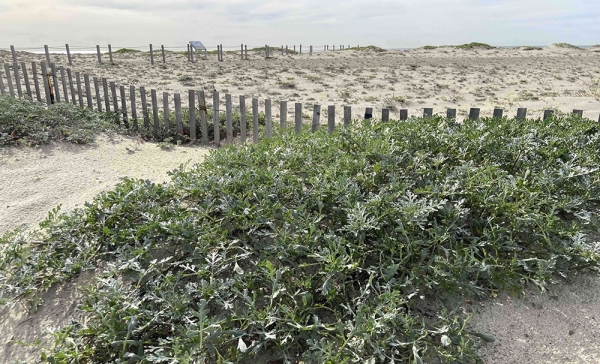Over the last several years, the residents of Santa Monica, a coastal city on the edge of Los Angeles, saw something neither they, their parents, or perhaps even their grandparents had ever seen before: a three-foot-tall dune system rising gently from the flat, groomed expanse of one of the world’s most famous urban beaches. It’s a six year alliance between sand, wind and vegetation, and, according to UC Santa Barbara researchers, it’s one way to enlist nature to help protect the coast from the impacts of climate change.
“The project was really to assess whether we could naturally grow dunes on a heavily urbanized, mechanically raked beach that had been that way for more than 70 years,” said Karina Johnston, a doctoral student at UCSB’s Marine Science Institute (MSI) and the Bren School for Environmental Science & Management, and lead author on a paper in Frontiers in Marine Science. “Could it work? Could it inform natural solutions to help protect our coastline from sea-level rise?” The short answer: quite possibly.
The threat of sea-level rise has become an issue for all coastal cities around the world as they grapple with warming oceans, more intense storms and flooding events. For heavily populated stretches of coast, such as Santa Monica Beach in Los Angeles, the issue is especially nuanced: City planners have to walk the line between protecting the coast and keeping it available to the millions of visitors it receives each year.
Read more at: University of California - Santa Barbara
Beach bur, a native plant that helped to form dunes on a section of Santa Monica Beach in Los Angeles (Photo Credit: Karina Johnston)


